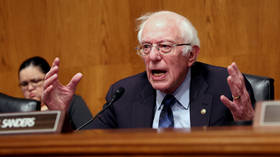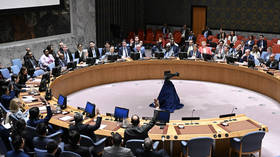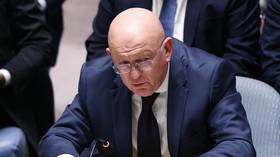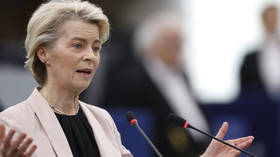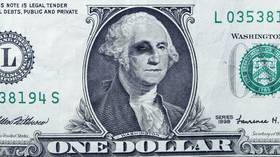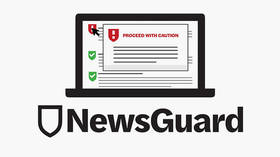Russian ambassador leaves UK after turbulent term
Russia’s ambassador to the United Kingdom, Alexander Yakovenko, has returned to Moscow after his term ended. He had striven to maintain normal diplomatic relations with the UK through Salisbury and other crises.
The Russian Embassy in London announced the diplomat’s departure on Saturday, and said Minister-Counsellor Ivan Volodin will act as chargé d’affaires in the meantime.
24 August Extraordinary and Plenipotentiary Ambassador of the Russian Federation to the United Kingdom of Great Britain and Northern Ireland Mr Alexander Yakovenko relinquished his duties and departed to Russia.Mr Ivan Volodin, Minister-Counsellor, acts as Chargé d'Affaires a.i. pic.twitter.com/JQ4EDDxWvE
— Russian Embassy, UK (@RussianEmbassy) August 24, 2019
Yakovenko took his post in London in 2011, when relations between the Kremlin and Downing Street were relatively stable. Two years beforehand, Foreign Secretary David Miliband had visited Moscow and described the relationship as one of “respectful disagreement.”
Three years into the job, Yakovenko’s work was complicated by the Ukraine crisis and reunification of Crimea with Russia. The UK joined the US and EU in imposing economic sanctions on Russia, and Prime Minister David Cameron and US President Barack Obama penned a scathing op-ed accusing Moscow of “ripping up the rulebook” by rejoining with Crimea.
Yakovenko described the sanctions, and those imposed after the downing of Malaysian Airlines Flight MH17, as “illegal, unreasonable and counter-productive,” predicting they “may well trigger a long anticipated endgame of the present global crisis.”
Also on rt.com Hackers disrupt website of Russian Embassy in UK for 20 hoursWith the UK deploying troops to the Estonian border in 2017, Yakovenko declared bilateral relations the worst they had ever been. A year later, things got even worse.
The poisoning of former Russian spy Sergei Skripal and his daughter Yulia plunged relations into the gutter. Prime Minister Theresa May immediately blamed Russia for the poisoning, with London yet to present any proof for their allegations. As May expelled Russian diplomats from London and urged allies to follow suit, Yakovenko pressed her government to provide evidence of Russian involvement, and maintained that Britain had a “political motivation” in blaming Moscow.
Yakovenko also called out the British press, which had gone into overdrive pumping out speculative stories. His embassy’s Twitter account corrected some of the media’s wilder claims, and fired off some tongue-in-cheek tweets of its own, trolling British police and intelligence agencies.
Advice to Russian citizens: when planning trips to #Stonehenge and #Salisbury, consider the risk of unwittingly drawing attention of British secret services struggling to produce evidence of Russian involvement in #Skripal poisoning. pic.twitter.com/WQFKsMevQV
— Russian Embassy, UK (@RussianEmbassy) August 24, 2018
“Nobody can speak on my behalf” says the statement issued by @metpoliceuk on behalf of Yulia Skripal https://t.co/1PxiAlvXM7pic.twitter.com/nBTlTWIzjG
— Russian Embassy, UK (@RussianEmbassy) April 12, 2018
Even one year later, Yakovenko was still deflecting ‘bombshell’ reports from the UK media. Back in March, the Daily Mail ran a “damning” investigation purportedly exposing the ambassador himself as a KGB agent, incorrectly citing state honors awarded to him, and shoehorning his name into a list of spies compiled by the US government in the 1980s, without any proof. The Russian Embassy called the article “ham handed” and based on “blatant lies.”
With Yakovenko on his way home, one can only hope his successor oversees a more peaceful, warmer period in London-Moscow relations.
Think your friends would be interested? Share this story!





